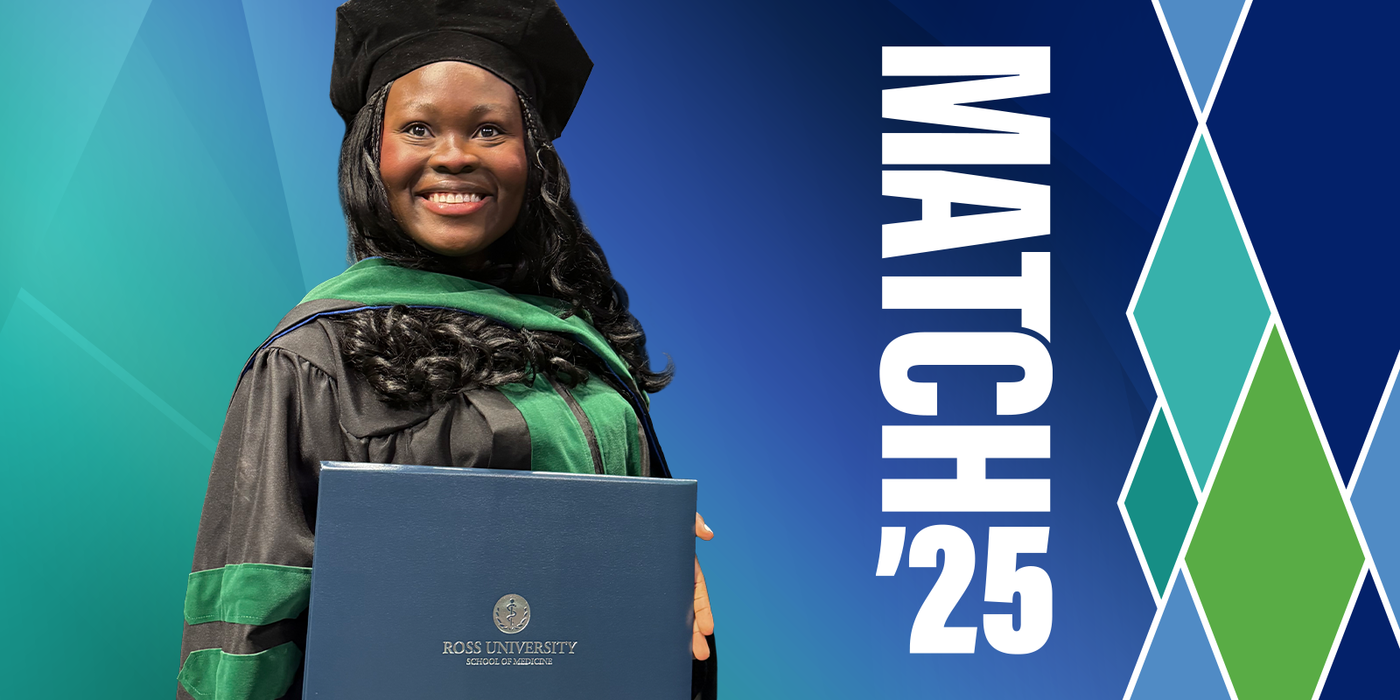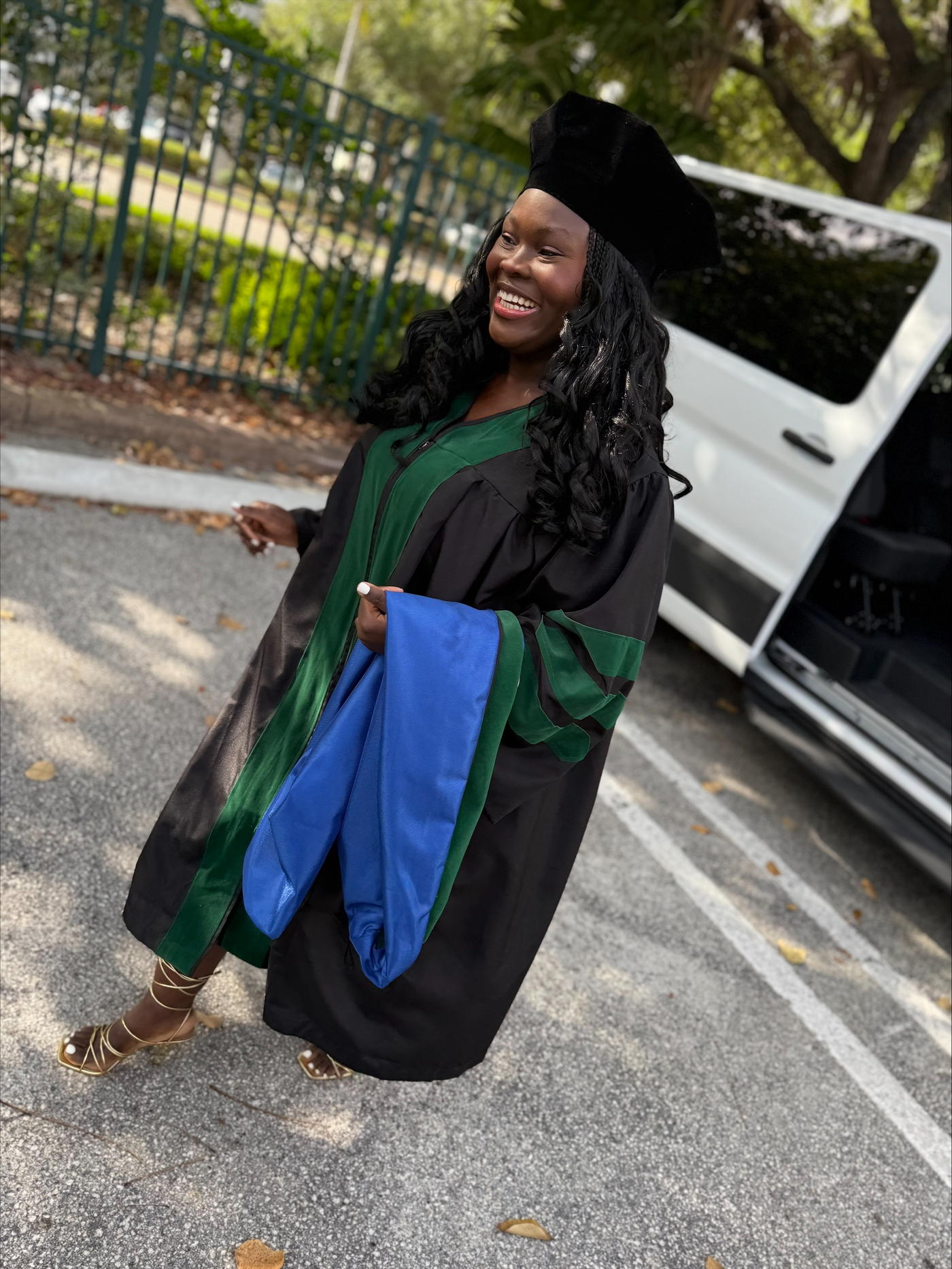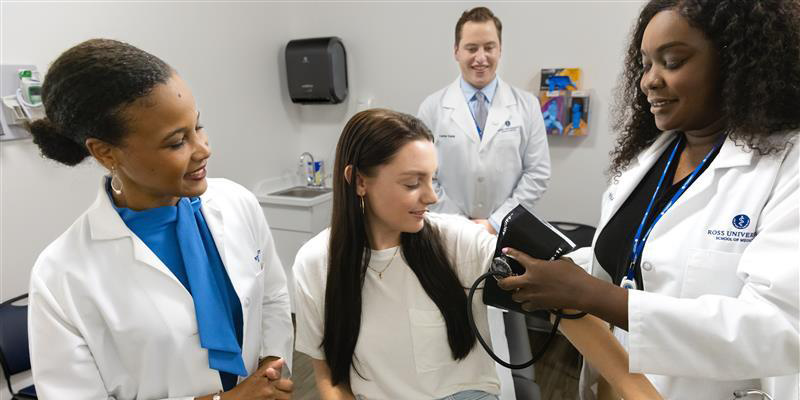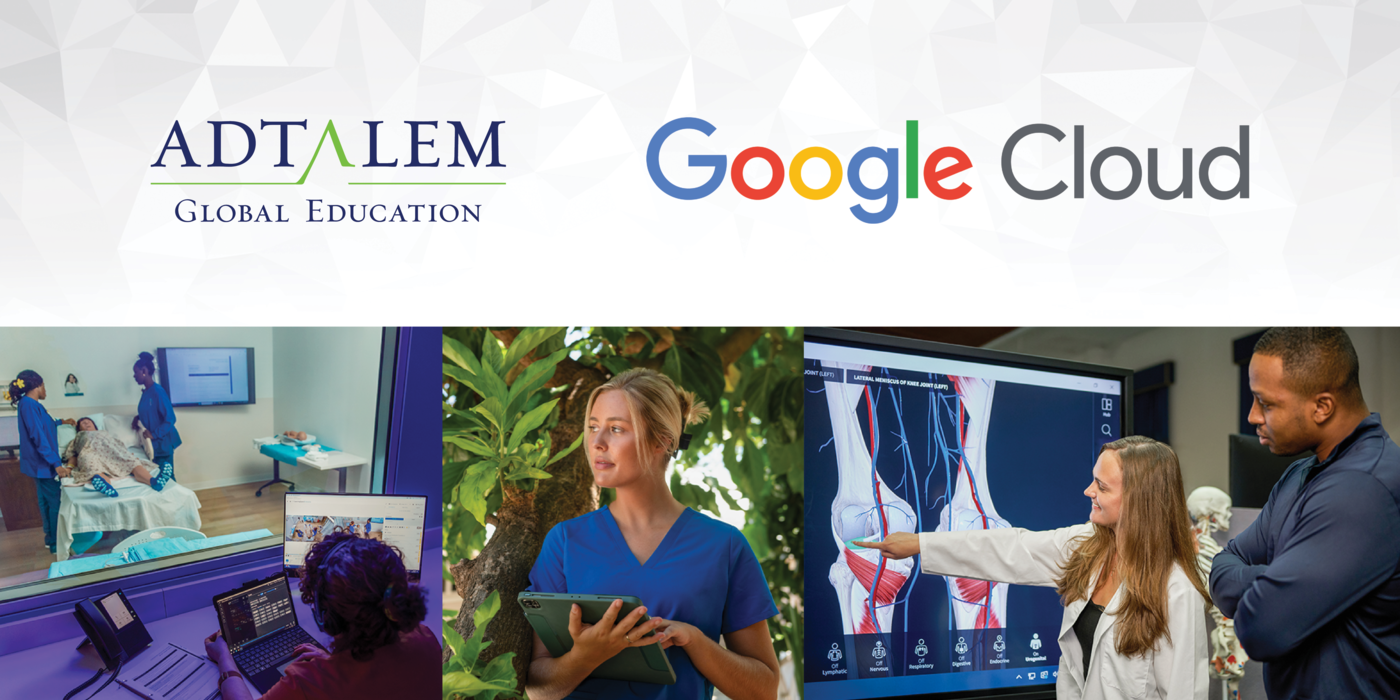Strategic partnerships between Adtalem’s medical schools and hospital systems around the country are influencing a better-prepared, more connected physician workforce.
Janis Kargbo, MD ’25, from Adtalem Global Education’s Ross University School of Medicine, remembers the moment she knew she wanted to become an OB/GYN. It was her second day on rotation at Jamaica Hospital Medical Center in Queens, New York, and she had just stepped into her first cesarean section. What she witnessed was more than surgery, it was precision, teamwork and transformation.
“These surgeons were opening the uterus, taking the baby out, closing it with this beautiful suture to the point where you couldn’t even see the incision,” she said. “I was mind blown. For me, it was the most beautiful thing I’d ever seen.”
That moment launched her into a path that now comes full circle.
After completing her medical degree and spending over eight months rotating through Jamaica Hospital during her clinical rotations, Dr. Kargbo matched to the OB/GYN residency program at the very same institution.
Her journey is one example of how strategic partnerships between Adtalem’s medical schools and hospital systems are strengthening the pipeline of physicians entering the workforce—equipping students with early exposure, continuity in training and a deep understanding of the communities they’ll go on to serve.
A Pipeline Built on Partnerships
In The Match® 2025 cycle, over 130 residents from RUSM and American University of the Caribbean School of Medicine are going to programs at one of 30-plus partner hospitals in the United States where RUSM and AUC students complete clinical rotations.
Dive deeper into The Match® 2025 and see how Adtalem’s medical schools meet the greatest healthcare needs.
Through RUSM’s partnership with Jamaica Hospital, Dr. Kargbo completed all her core clinical rotations—surgery, internal medicine, OB/GYN and others—at a single site. She also chose to return for elective rotations and a sub-internship, building months of firsthand experience in a high-acuity, community-based setting.
Like Dr. Kargbo, about half of the 130-plus residents at partner sites are returning to a system where they have already trained. Training at a single hospital throughout clinical years allows students to build familiarity with the care environment, the patient population and the team-based culture that shapes their growth as physicians.
Dr. Kargbo says that’s especially true at Jamaica Hospital, where exposure to a wide spectrum of care helped prepare her for the realities of residency.
“Any language or culture you could think of, you’d see it represented in the patients at Jamaica,” she says. “It gave me exposure to so much I wouldn’t have experienced anywhere else.”
From Learner to Colleague
Dr. Kargbo credits her time at Jamaica Hospital with both clarifying her specialty and preparing her emotionally and professionally to begin her residency. Beyond familiarity, one the biggest benefits of returning to the same hospital is creating a stronger foundation for learning during one of the most intense periods of a physician’s career.
Although her title has changed from medical student to OB/GYN resident physician, she’s not starting something new, she’s continuing something deeply familiar built over months of experience and a support network already in place.
“There’s a lot of pressure, but when you already know the people and they know you, you get honest feedback,” she says. “That’s what’s going to make me the best doctor I can be.”
Improving Maternal Health Starts with Representation
Dr. Kargbo was drawn to OB/GYN’s opportunity to support women through deeply personal, life-changing experiences. As a Black woman, she sees her presence in OB/GYN as vital to the patients she’ll serve—especially in a U.S. healthcare system where disparities in maternal outcomes persist and Black women face significantly higher maternal mortality rates.
It’s a reality Dr. Kargbo hopes to help change. According to a community health assessment Jamaica Hospital conducted, the majority of their patients are Black women.
“Most of the residents matching into OB/GYN from my class were women of color,” she says. “For me, as a Black woman going into this field, that really matters. When patients see someone who looks like them, who understands their experience on a cultural level, it builds trust, and that trust can be the difference in outcomes.”
See more about how our Degrees of Impact are making a difference.
For more information, email the Adtalem Global Communications Team: adtalemmedia@adtalem.com.




